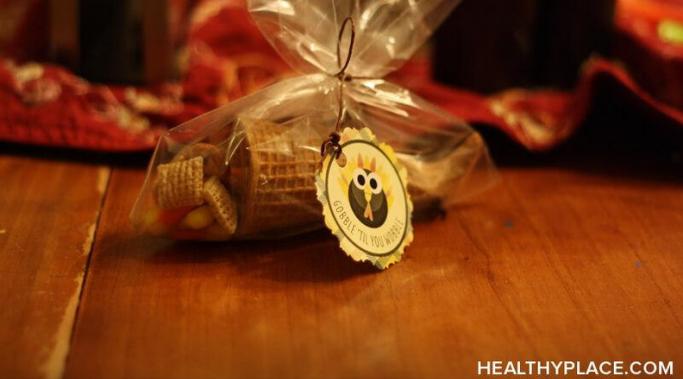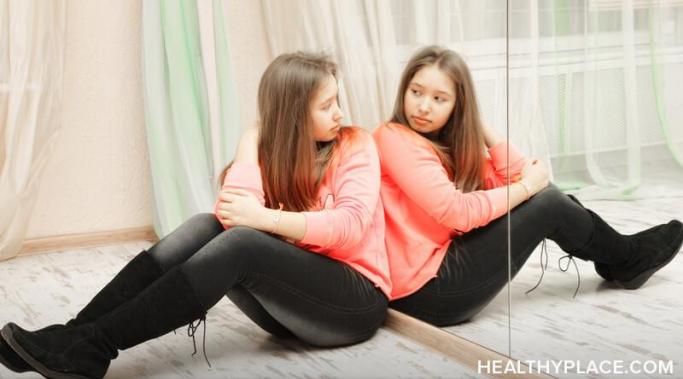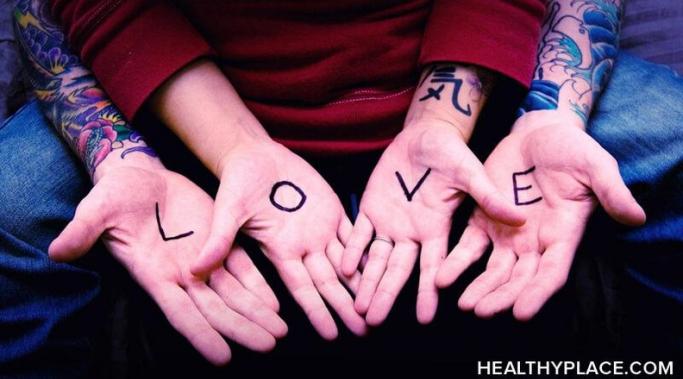The myth of holiday suicide is one of the most stubborn myths related to mental illness. Because it’s now officially the holiday season, I want to take this opportunity to do my part to bust the most stubborn myth. Most of you have probably heard there is a significant increase in suicides during the holiday season; however, as the title of this post suggests, this is a myth. Suicide rates are actually lower than average during the holidays, with their peaks occurring in the spring and fall. While most people probably don’t think much of the myth, dismissing it as another old wives tale tenaciously hanging on to relevance, I’m much more disturbed by it, and feel the holiday suicide myth needs to be addressed with some degree of urgency.
Anxiety-Schmanxiety
Anxiety has a yin and a yang, which, when embraced, can help you find the balance that reduces anxiety. Originating from ancient Chinese philosophy, yin and yang are complementary forces, opposite but not oppositional. They are balancing energies that can at once both soothe and strengthen. Everything and everyone has yin and yang, including anxiety and its reduction. Anxiety's (and anxiety management's) yin and yang, its balancing forces, are acceptance and action. You can use acceptance and action to soothe your anxiety and move ahead into your quality life.
Holidays can be hard when you are living with anxiety and loneliness. Holidays can be stressful for anyone, but when you experience any type of anxiety, they're more difficult. Then, when you layer a sense of loneliness and isolation on top of anxiety, holidays can be quite upsetting. Anxiety can make you feel lonelier on a special day, and loneliness can exacerbate anxiety. Understanding what's going on with these misery-causing experiences can help you change your holidays for the better.
I’ve always been anxious about money. I suppose that doesn’t make me odd – it puts me in the mainstream. What does make me odd is that I’m anxious about money when there is absolutely no reason for me to be, and I fear it’s actively been detrimental to my wellbeing.
You can live anxiety free by practicing yoga on your own or participating in yoga therapy. Sometimes, in trying to beat anxiety, we go after our anxiety symptoms. After all, the symptoms are how we experience anxiety in our thoughts, emotions, physical sensations, and actions. Taking actions to reduce the symptoms of anxiety can be quite helpful; however, it can be incomplete. Growing research is demonstrating that treatments that address the whole person, beyond just symptoms, can lead to a new anxiety-free life. Yoga and yoga therapy are holistic approaches to anxiety and overall wellbeing.
Because Thanksgiving is so close, I wanted to discuss how anxiety has done something positive and made me realize how thankful I am for many things in my life. Though mental illness is seldom framed positively, they can give you a valuable perspective that people who aren’t mentally ill don’t have.
Do you know who you are? How's your sense of self, of how you'd like to live your life? Knowing who you are at your core can help stop anxiety so you can start living. This happens through a process of self-discovery. Think of it as an adventure into your inner workings that starts with the question: Who will you be when your anxiety is gone? At first, it might be hard to even imagine the answer. To begin to know who you are, stop anxiety, and start living, learn to simply observe yourself.
It may seem strange to some to hear diversity being suggested as a means to fight anxiety. After all, a prime breeding ground for anxiety is the unknown – if we don’t know or understand something, we don’t know if we’ll be safe around it, ergo we take refuge in the familiar. Logically, this makes sense. In actuality, this is nonsense, and it may well be that its contrary is much more effective in combatting anxiety.
If you feel frustrated (and maybe even defeated) because you can't stop worrying, you're not alone. The tens of millions of people with anxiety are worrying, too. Worry involves running what-ifs and worst case scenarios through your head day and night. It creates anxious agitation, physical side effects, and strong emotions. It's exhausting and can reduce your quality of life. The good news is that you can break out of the cycle of relentless worry. Try this quick reference tool to easily remember techniques to stop worrying.
It's important to build self-respect to help you reduce anxiety. One of anxiety's most damaging effects is that it makes it difficult for people to respect themselves. We question ourselves and worry about disapproval. Out of worry and fear of causing problems, we sometimes become people-pleasers. As such, we tend to avoid saying "no" and setting limits in general. This, in turn, increases anxiety and can further erode self-respect. You're not doomed to being a yes-person forever, though. Setting limits is a skill you can learn and you can build self-respect and reduce anxiety in the process.









